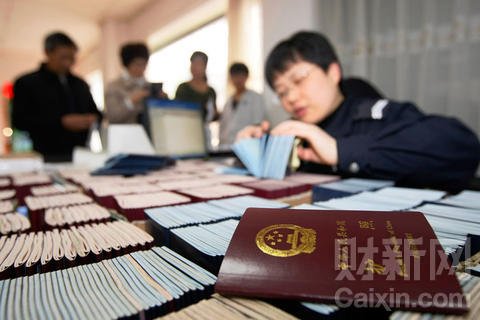
(Ecns.cn) -- Traveling to other countries has become much easier for Chinese citizens over the years, yet compared to many developed countries, going abroad is still an ordeal that requires a discouraging amount of red tape.
This month the government began soliciting public opinions on new draft legislation controlling the exit and entry of citizens, sparking debate over passport and visa problems among the populace.
Unanimous concern has been voiced over the fact that normal citizens are not allowed through Chinese customs if they are leaving for countries or regions that grant visa-free entry or landing visas on arrival, a courtesy currently extended only to service passports.
Many argue that the freedom to enter or leave their home country is a basic right, but the current exit and entry control system in China has made foreign trips cumbersome and unpleasant from the very beginning.
In 2011, China was ranked 43rd among the 48 countries listed on the Henley Visa Restriction Index, a clear indicator of both the degree of opening up to foreign visitors and the freedom to travel held by Chinese citizens.
Different passports, different treatments
By September 30, 2011, 74 countries had signed mutual visa exemption agreements with China. With the exception of San Marino, all are only for diplomatic, service or official passport holders and only allow durations of less than 30 days, according to Caixin.
On May 8, 2011, Zhang Qianfan, a professor at the School of Law of Peking University, posted on his weibo microblog that he had failed to attend a constitutional seminar held in Nepal because frontier control had refused to permit him to leave.
Zhang had heard that Chinese citizens can get visas upon arrival in Nepal, so he mistakenly believed that he could skip the inconvenience of preparing materials and applying for a visa beforehand. However, he was unaware that the policy does not cover private passports.
Zhang's experience is not an isolated case. Before the Spring Festival in 2011, a woman referred to here as Xiao Hua went through a similar situation at frontier control as she and her husband were about to board an international flight.
Xiao Hua is an employee at a state-run media organization. Last year, she made a last-minute decision to make use of vacation time to travel abroad with her husband. Since they had very limited time ahead of the trip, Xiao Hua chose Sri Lanka, because she knew it was on the list of countries that offered landing visas to Chinese citizens.
However, after they arrived at the airport and got to frontier control, Xiao Hua was surprised to hear that they could leave China only if they had visas. At that moment, Xiao Hua called a friend at the Exit-Entry Administration Office, who told her she would try to sort the problem out. But as frontier control had almost agreed, Xiao Hua found the place of issuance shown on her husband's passport was not Beijing – which proved to be another strike against them – so they were forced to cancel the trip.
In response to the problem of not being allowed to leave China without a visa from a foreign country, an unnamed official said it takes place because the regulations emphasize visas as vital prerequisites in the checking procedures for exit and entry, and that the current policies need careful reforms.
Reforms needed
Meanwhile, the plight of private passport holders also suffers from the messy practices and illegal acts of Chinese citizens who want to immigrate and attempt to do so by any means.
With the rapid development in the past decades, China has performed well on the economic side, but it needs to focus on other aspects as well. The Henley Visa Restriction Index, to some extent, reflects the comprehensive strength of a country, since many foreign countries take the condition of the poorest Chinese citizens into consideration when deciding to sign mutual visa exemption agreements, according to Liu Guofu, professor at the School of Law at the Beijing Institute of Technology.
At the same time, Liu noted that reforms of the policy concerning overseas Chinese should also be pushed forward. Currently this group of citizens must apply to Chinese diplomatic agencies in other countries before they can return to China, which is seen as a deprivation of their basic rights and may give rise to international discord.

Copyright ©1999-2011 Chinanews.com. All rights reserved.
Reproduction in whole or in part without permission is prohibited.